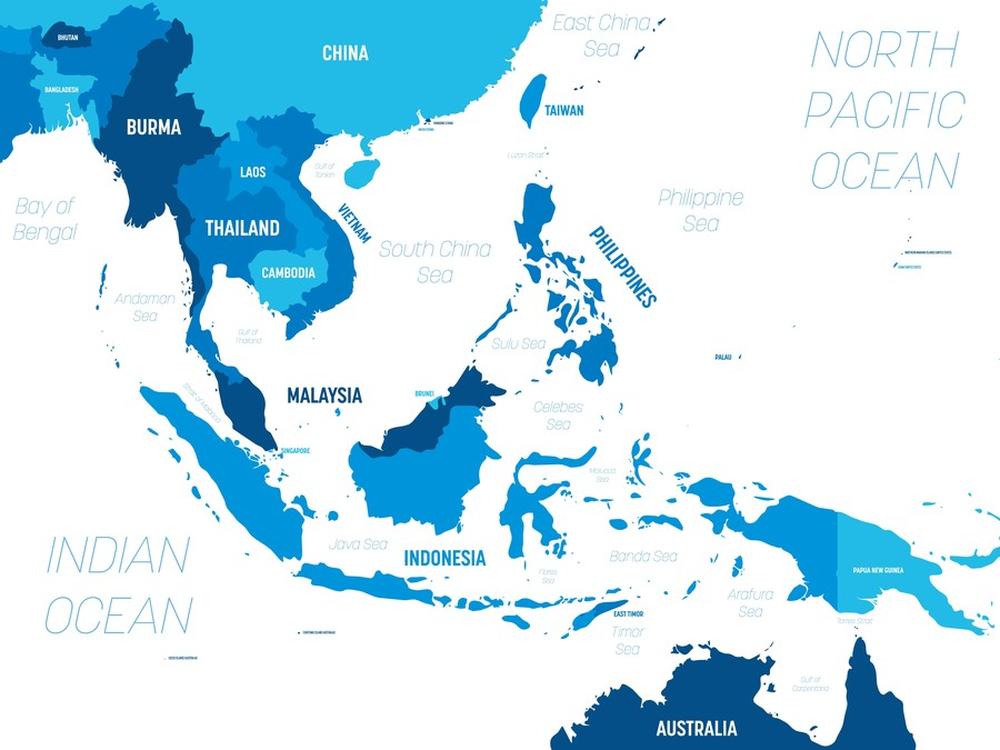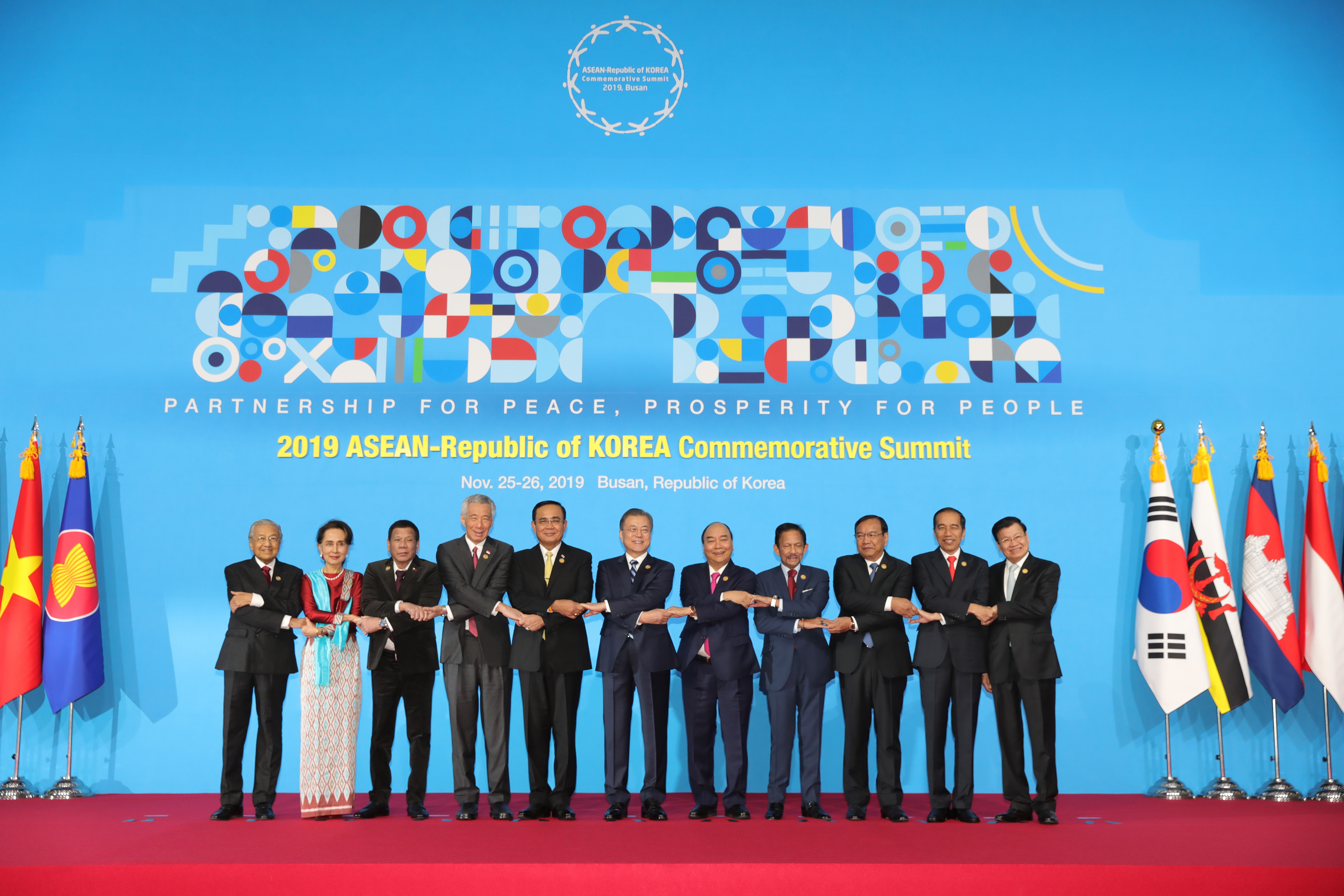- #Global Issues
- #Multilateral Relations
- #South Korea

► Southeast Asia has high stakes in the development of relations with South Korea under the new Yoon administration.
► A key question on some regional minds will be on whether Yoon will be able to keep the focus on Southeast Asia for its own sake even as the administration develops a wider approach to security issues like the U.S.-South Korea alliance, China’s assertiveness and North Korea.
The inauguration of South Korean President Yoon Suk Yeol last month represents a key development in the evolution of Seoul’s ties with Southeast Asia given their strategic importance, a challenged regional and global environment, and the personal investment made by Yoon’s predecessor Moon Jae-in in advancing ROK-Southeast Asia relations. As such, as Yoon develops his own approach to domestic and foreign policy in the coming months and years, Southeast Asia will be looking closely for signs of continuity and change that may emerge in components of diplomatic, economic and security ties.
Southeast Asia has high stakes in the development of relations with South Korea under the new Yoon administration. Since the 1990s in particular, South Korea has not only grown to be one of the consistently top trade and investment partners for Southeast Asia, but has also expanded its cultural and people-to-people links and asserted its own growing middlepowermanship in the regional and global system now in a state of uncertainty with a more assertive China and a more unpredictable United States. The Moon Jae-in presidency saw a further elevation of ties, with the three-pillared New Southern Policy (NSP) focused on people, prosperity and peace seeing a high-level commitment to expanding ties across the region.
The Yoon administration is taking office at a particularly important time for Southeast Asia. The region is managing the impacts of a confluence of geopolitical developments, including intensifying U.S.-China competition, the COVID-19 pandemic, Russia’s invasion of Ukraine and the crisis in post-coup Myanmar. It is doing so amid continued political change, with elections having just taken place in the Philippines, Timor-Leste and Cambodia and new polls looming potentially Malaysia and Thailand as well. ASEAN as a grouping is also facing challenges to its much-prized centrality as it struggles to adapt to domestic, regional and global changes, a point that is acknowledged even by some of the more ardent multilateralists in the region itself.
All this means that a changing Southeast Asia will be watching closely what the Yoon administration will approach the region as well as the wider Indo-Pacific and world. On the diplomatic side, the key focus will be on the degree to which the Yoon administration will prioritize Southeast Asia as a region and ASEAN as a grouping in its foreign relations, considering that the subregion continues to see a whole host of major powers increasing their focus there. Moon set a high bar in this regard with his own personal commitment to advancing ties with Southeast Asia. This period saw him visit all ten ASEAN member states during his time in office in addition to driving the NSP to promote functional cooperation in specific sectors as well as even in subregions like the Mekong which added more granularity to Seoul’s ongoing approach.
The set of 110 national priority tasks outlined initially by Yoon’s transition team does suggest some focus on ASEAN and areas of potential convergence. Yet Southeast Asian states will be looking at more specific early indications, including the sequencing of diplomatic exchanges and his attendance at the first round of ASEAN summitry later this year, to assess the extent to which high-level diplomatic attention to the region is being continued from the Moon administration or what the potential may be for a further elevation of ties. Additionally, any shifts in South Korea’s approach to the Indo-Pacific will be closely watched, especially as ASEAN is continuing to develop its own ASEAN Outlook for the Indo-Pacific initially put forward back in 2019.
On the economic side, the focus will be on the extent to which a changing emphasis in certain economic sectors could mean for cooperation between South Korea and Southeast Asia. A series of shocks in recent years, including COVID-19 and Russia’s invasion of Ukraine, has led Southeast Asian nations across the board to pursue more digitalized, sustainable, inclusive, connected and resilient approaches to their domestic and foreign policy outlooks, which is evident in the agendas promoted under the Brunei and Cambodia chairmanships of ASEAN in 2021 and 2022 respectively. Southeast Asian countries are responding by coming up with strategies at home and abroad with dialogue partners and accelerating their efforts to develop mechanisms like sectoral economic pacts and cleaner and more secure energy programs.
Yoon has proposed a so-called ABCD strategy in relation to Southeast Asia, which focuses on advancing human capital, building health security, connecting cultures and digitizing Asian infrastructure. How these translate into specific policy initiatives in areas such as the digital economy and infrastructure development will be important to watch. In particular, the extent to which South Korea is able to distinguish itself and leverage its own value add in these areas will also be significant considering that some of them have been evidenced in the context of new and elevated comprehensive strategic partnerships ASEAN as a grouping forged with Australia and China last year, and the developing agenda with an upcoming arrangement with the United States.
On the security front, a key question will be the extent to which South Korea builds out a clearer and more granular defense vision that affects its ties with Southeast Asia. Seoul has been making some inroads on the defense front in Southeast Asia in recent years, with more defense deals with individual countries like Indonesia and the Philippines and a greater role in select functional areas to include humanitarian assistance and disaster relief. Yet it is also true that by some measures and relative to other countries such as Japan, Seoul is still not perceived as widely in the region as a major security player among publics and even among some regional elites.
Given the seemingly greater attention to security issues we have seen thus far from Yoon, all eyes will be on whether this results in a change in Seoul’s approach and what bearing this will have on Southeast Asia. The Yoon administration’s initial foreign and security policy outlook and earlier articulations includes some notable areas which offer potential convergence in a broader notion of comprehensive security that extends beyond narrow military-to-military ties, such as artificial intelligence, science and technology, cybersecurity and elements of “economic security” like supply chains. More generally, a key question on some regional minds will be on whether Yoon will be able to keep the focus on Southeast Asia for its own sake even as the administration develops a wider approach to security issues like the U.S.-South Korea alliance, China’s assertiveness and North Korea.
To be sure, it is still early days in the Yoon administration, and, as recent years have reminded us, shifting regional and global developments can quickly come to affect ties between countries and regions. Nonetheless, given the importance of ROK-Southeast Asia relations, the progress that has been seen in recent years in ties and the advent of a new administration in Seoul, Southeast Asia will no doubt be looking closely at early signs of continuity and change that may emerge across the diplomatic, economic and security domains in the coming months and years.
Dr. Prashanth Parameswaran is a Fellow at the Woodrow Wilson International Center for Scholars. He is also Deputy Head of Research at the BowerGroupAsia consultancy and a Senior Columnist at The Diplomat magazine, one of Asia’s leading publications.
